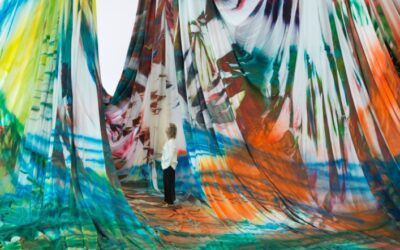Puccini's tragic opera, beautifully performed by the soprano lead.
Madame Butterfly's focus is misplaced devotion; the drama of the opera is used to effectively convey the utter hopelessness of doomed love. It has dated in its values to an extent-it is hard to believe today's modern woman would be as accepting of a man who clearly did not take their marriage seriously; the production instead shows the effect of an undying love and the true fragility of Madame Butterfly; she is literally destroyed when she realises Pinkerton (her husband) has betrayed her trust. The key theme of unswerving devotion in the face of adversity and a woman's love for a "bad" man is as perennial as the seasons though; anyone who has ever been disappointed in love can relate to Mme Butterfly's complete despair.
The opera was based in part on two novels; "Madame Butterfly" by John Luther Long and "Madame Chrysanthème" by Pierre Loti. It has also been alleged that the opera was heavily influenced by real events in Nagasaki during the early 1890s. Many women worked as geishas, relying on rich western men to provide for them financially and waited eagerly for the ships to come into the harbour and for the men to return. Madame Butterfly is unusual in that she relies on her husband, Lieutenant Pinkerton, emotionally as well as financially. She cannot accept that he was not as serious about their relationship which leads to a truly emotional and tragic conclusion at the end of the opera.
The doomed love story shown in Puccini's Madame Butterfly was beautifully depicted in this production of the opera which is performed in the round and was translated into English by Amanda Holden, making the performance more accessible and increasing the audience's understanding of the opera's tragic conclusion.
On entering the Royal Opera House, one is first struck by the beauty of the set-there is a simple Japanese house of one room built on a platform surrounded by bridges and water. The set is used effectively thoughout the performance with Pinkerton drawing attention to the flimsiness of the house (built with sliding wooden partitions and paper) and how he also sees the marriage as transient. The scene where Madame Butterfly becomes romantically involved with Pinkerton after the marriage makes great use of the water by floating candles on it, showing the reflections of the singers and adding lanterns-one really feels the beauty of the scene and that she is very much in love with Pinkerton.
As the second Act commences, the water has drained away and the stage is lit harsly symbolising her despair at having lost Pinkerton although she believes he will return. The set and lighting reflects Butterfly's emotions throughout the performance; it is light and energetically used during the initial marriage ceremony, dark and romantic on the wedding night scene and sparse and bare in the second half when she misses her husband and has little money left from him. I also thought that it was effective as the audience would have a good view of the opera from all sides and the singers used the space well in this regard.
The costumes are rich and beautiful in the first half, Madame Butterfly wears a fabulous red kimono and the overall effect of the wedding scene is very colourful and exciting. Madame Butterfly's costume again changes in the second half to a more demure dress; she is the wife waiting for her husband to return and, like the set, the drabness of the outfit shows her unhappiness. Pinkerton wears a typical Navy unifom throughout which juxtaposes interestingly with the traditional Japanese outfits; he never really fits into her world. The difference in the two cultures is further emphasised by the arrival at the end of the play of Pinkerton's new American wife. Her costume is quintessentially western and again outlines how unlike Butterfly she is.
The performances of the singers were exquisite, especially the title role as Mihoko Kinoshita’s arias combined with Puccini's music really outline the sadness and despair of Mme Butterfly's situation. I was also impressed by the vocals of Pinkerton and Suzuki (Butterfly's maid) played by Nina Yoshida Nelsen. Oliver Gooch, the conductor of the Royal Philharmonic Orchestra was also very talented and the music was incredibly moving; it is almost impossible not to cry at the end of the performance.
Overall, I would absolutely recommend this production to anyone, it was beautifully performed and is one of the most tragic stories in opera.
24th February-12th March 2011
Royal Albert Hall
Image: Christian Meyn / FreeDigitalPhotos.net

The aim of art is to represent not the outward appearance of things, but their inward significance. – Aristotle













